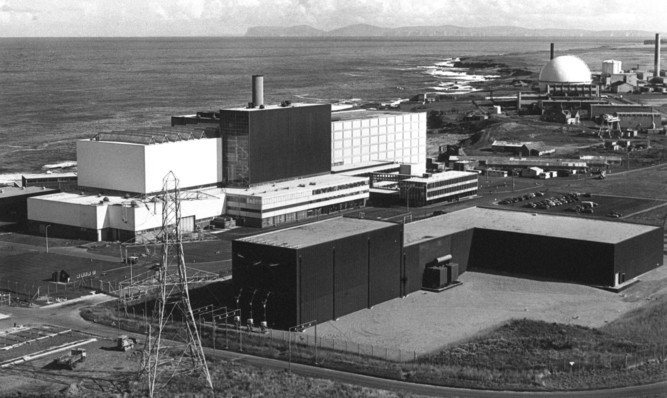A few weeks back I was given a publication entitled ‘Scotland in 1958’ by Bob Ritchie, an SNP stalwart from Peterhead.
Indeed describing Bob as a stalwart doesn’t actually give him the full credit which he is due.
Bob was campaigning for the SNP even before we were able to field candidates in the north east of Scotland.
In those far off days, Bob and his compadres, in the absence of their own candidate to vote for, placed ‘Home Rule’ stickers on the ballot paper at elections and then judged their electoral support on the number of spoilt papers.
Their election tactics may have been rudimentary, but there was nothing elementary about their publications if Scotland in 1958 is anything to go by.
This “political and economic review” of Scotland is advanced politics.
Priced at 1/6 (that’s 7.5p in new money) it ran to 12 pages and faithfully documented the key economic and political events of the year 1958, but from a Scottish perspective.
Thus we find that in January 1958 the BBC stated that it hoped to devote a whole FOUR HOURS a week to Scottish programmes, but in February Canadian magnate Roy Thomson was able to boast that his newly established Scottish Television (STV) had already created almost 300 new jobs.
In March, it was reported that Scotland had lost 35,500 people via net emigration, a process described as “bloodletting”, however in better news fish landings recorded an 8% annual increase in April.
The first ‘fast breeder’ nuclear reactor went live at Dounreay in May while in June John McGovern MP, the last of the rebel Clydesiders, announced that he would not be seeking reelection after yet another battle with exasperated Labour whips at Westminster.
There was a jobs blow in Dundee in July with Fairbairns announcing the closure of their Blackness engineering works, and in August MacBrayne’s came under fire for proposed ferry “curtailments” in the Hebrides.
In September, the Labour Party Scottish Council decided that it was unanimously against Home Rule, but there was a good result for Brodick Castle in October. It was taken over by the National Trust for Scotland after a successful financial appeal.
There was grim economic news in November, with unemployment reaching a post-war high of 4% and then the year ended as it had begun with BBC under pressure by the fledgling STV.
By December the Beeb had decided they were hopeful of six to seven hours a week of Scottish content by 1962.
In the 1958 publication all these events of the year were drawn together with the statistics and economic news allowed to speak for themselves and the reader invited to draw their own conclusions from the facts to hand.
The economic theme was of Scottish companies being taken over, their operations reduced to branch office status and then closed down.
The political theme was how little the established parties and institutions of state cared about Scotland as a nation.
Any movement which has become as politically dominant in Scotland as the SNP has now become was required to build on the strongest of foundations .
Scotland in 1958 illustrates why this is the case. There are hard headed arguments aplenty but also principle which shines bright from every page.
The argument is just as strong as now and the mission and hope just as clear.
Scotland in 1958 may be a pamphlet from a bygone age but it is very modern in its outlook. It speaks to us now with clarity and relevance. Only the times have changed.Mars takes us closer to answering big questionIn the third century BC Aristarchus, the Greek astronomer, put forward the idea that Earth revolved around the sun, around 1,750 years before Copernicus got round to the same revolutionary concept.
In the middle ages Persian thinker Omar Khayyam correctly calculated from his astronomic tables that a calendar year was 365.242199 days long. In the early modern period astronomy was dominated by the key discoveries of Galileo, Kepler and Newton.
In modern times, Einstein developed the theory of relativity in 1905. In 1961 Yuri Gagarin successfully completed the very brief, but the first, orbit of the Earth in his tiny Vostok spacecraft.
I stayed up through the night in 1969 to watch an American Scot, NeilArmstrong, land on the moon.
They were all big years in astronomy and the 46 years since the moon landing have been packed with advances of bewildering speed and complexity.
However, this is the year we have convincing empirical evidence to answer the greatest question of all are we alone in the universe?
Firstly there was the discovery that water is flowing right now on thesurface of Mars, overturning the last 40 years of accepted wisdom that our neighbouring planet was an arid and sterile world. And this week Nasa capped that by announcing iced mountains of water and also the likelihood of underground lakes and blue skies on Pluto.It’s better thanthe alternativeThe great Australian wit and critic Clive James has admitted to feeling “embarrassment” at still being alive, a year after forecasting his own imminent death in a poem.
His many admirers like myself are actually pretty pleased that Clive, who has been battling cancer, is still with us and writing.
He should comfort himself with the thought that whatever embarrassment he might feel, it is somewhat better than the alternative of always being proved correct.
